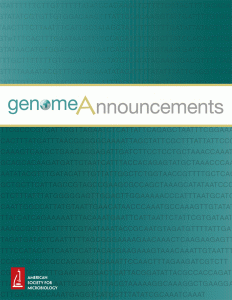 The big news this week at Retraction Watch was the release of more than two dozen retractions for accounting researcher James Hunton, and the sentencing of Dong-Pyou Han for scientific fraud (see more below). Here’s what was happening elsewhere: Continue reading Weekend reads: Is failing to share data misconduct?; worst journal ever; Elsevier boycott
The big news this week at Retraction Watch was the release of more than two dozen retractions for accounting researcher James Hunton, and the sentencing of Dong-Pyou Han for scientific fraud (see more below). Here’s what was happening elsewhere: Continue reading Weekend reads: Is failing to share data misconduct?; worst journal ever; Elsevier boycott
Misidentified genetic sequence causes retraction of pathogen paper one month after publication
The author of an article mapping the genome of an infectious bacterium is pulling the paper because — well, it wasn’t the bacterium she thought it was.
Study author Celia Abolnik is retracting her paper in Genome Announcements because it didn’t actually map out the DNA of Mycoplasma meleagridis, a bacterium that typically infects turkeys but has recently been found in chickens.
The trouble was, the sequence for Mycoplasma meleagridis in the National Institute of Health’s DNA database, Genbank, was actually a different variety of bacteria — Mycoplasma gallinaceum, another scourge of poultry.
Here’s the notice for “Complete Genome Sequence of Mycoplasma meleagridis, a Possible Emerging Pathogen in Chickens:”
Editors retract algae study, citing “issues with the data”
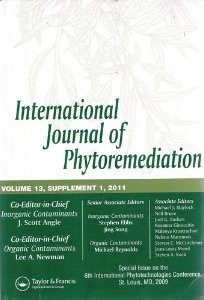 The International Journal of Phytoremediation has issued a retraction for a 2013 article suggesting algae could shield against gamma radiation better than lead.
The International Journal of Phytoremediation has issued a retraction for a 2013 article suggesting algae could shield against gamma radiation better than lead.
Sadly, such an innovation was not to be — the editors have pulled the paper, saying:
We are now cognizant that there are issues with the data and determinations made within the manuscript that cannot be corrected through a corrigendum.
The paper is now covered by a dizzying watermark. (The first page can be seen here.)
Here’s more from the retraction for “Shielding Property of Natural Biomass Against Gamma Rays”, authored by a group of professors at Amasya University, Aksaray University, and Suleyman Demirel University in Turkey:
Continue reading Editors retract algae study, citing “issues with the data”
Corrections (and one EoC) propagate for distinguished plant biologist, Olivier Voinnet

There may be some deeply rooted issues in the work of high-profile plant biologist Olivier Voinnet, biology department research director at ETH in Zurich. Corrections have continued to pile up months after his work was hit with a barrage of criticism on PubPeer. We’ve tracked a total of seven corrections over the past five months (not including the April retraction of a 2004 paper in The Plant Cell). One of the corrected papers also received an Expression of Concern this week.
Collectively, the corrected papers have accumulated more than 1200 citations.
In January, Voinnet said he planned to correct multiple papers, after receiving “an anonymous email.”
One of the recent corrections we found is for a 2003 article in The Plant Journal, “An enhanced transient expression system in plants based on suppression of gene silencing by the p19 protein of tomato bushy stunt virus,” which details using proteins from a tomato virus to help alter gene expression. The study has been cited 862 times, according to Thomson Scientific’s Web of Knowledge. Here’s the correction notice, posted June 8:
Lancet journal removes Buddha cover art following protest
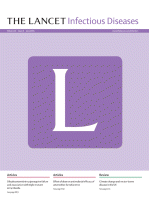 The Lancet Infectious Diseases has removed a cover illustration of the Buddha contemplating a mosquito from its June, 2015 issue — a complement to a paper about malaria treatment in Cambodia — after receiving emails from readers who protested the depiction of the statue in a non-religious context.
The Lancet Infectious Diseases has removed a cover illustration of the Buddha contemplating a mosquito from its June, 2015 issue — a complement to a paper about malaria treatment in Cambodia — after receiving emails from readers who protested the depiction of the statue in a non-religious context.
After publishing the cover, the journal received “several emails” protesting the image, such as this one from Arjuna P R Aluwihare:
Continue reading Lancet journal removes Buddha cover art following protest
AIDS vaccine fraudster sentenced to nearly 5 years in prison and to pay back $7 million
A researcher who confessed to spiking rabbit blood samples to make the results of an HIV vaccine experiment look better has been sentenced to 57 months of prison time, according to The Des Moines Register.
Dong-Pyou Han has also been ordered to repay more than $7 million to the U.S. National Institutes of Health, and will have three years of supervised release following his prison term.
In December, 2013, the U.S. Office of Research Integrity announced that Han, formerly at Iowa State University (ISU), had faked his results to make an HIV vaccine look more powerful. The faulty data made their way into seven national and international symposia between 2010 and 2012 (resulting in a retracted poster in 2014), along with three grant applications and multiple progress reports. Han agreed to a three-year research ban, and resigned from ISU in October the following year.
The NIH never sent the final $1.38 million grant payment of more than $10 million awarded to Han’s boss, Michael Cho, and ISU returned nearly $500,000 it had received for Han’s salary and other costs.
Duke University lung researchers cough up fourth retraction, due to “inconsistent” data
 The Journal of Applied Physiology has retracted a 2012 respiratory study after the authors found “inconsistent” data that “could not be traced to their source.” It’s the fourth retraction for two of the researchers, including Erin Potts-Kant, who was arrested in 2013 for embezzling more than $14,000 from Duke University.
The Journal of Applied Physiology has retracted a 2012 respiratory study after the authors found “inconsistent” data that “could not be traced to their source.” It’s the fourth retraction for two of the researchers, including Erin Potts-Kant, who was arrested in 2013 for embezzling more than $14,000 from Duke University.
The study, “Effects of corticosteroid treatment on airway inflammation, mechanics, and hyperpolarized 3He magnetic resonance imaging in an allergic mouse model,” looked at how corticosteroid therapy, a steroid treatment used for asthma, worked on mice. It’s been cited four times, according to Thomson Scientific’s Web of Knowledge, and was one of the products of the environmental lung health research conducted by Potts-Kant and Duke professor William Foster, the other co-author on the retracted studies.
Here’s the complete retraction notice: Continue reading Duke University lung researchers cough up fourth retraction, due to “inconsistent” data
Macchiarini co-author objects to investigation’s misconduct verdict

One of Paolo Macchiarini’s co-authors on a 2011 Lancet paper describing an allegedly groundbreaking procedure to transplant an artificial trachea seeded with stem cells is objecting to a recent investigation that concluded Macchiarini had committed misconduct.
Ola Hermanson, who studies neural stem cells at Karolinska Institutet, argued in a report dated June 29 that the investigation contained “serious flaws and formal errors.”
Hermanson’s lengthy response (uploaded here except for supporting emails) is to the findings of an external review of allegations about Macchiarini’s work, conducted by Bengt Gerdin, of Uppsala University. In regards to the 2011 Lancet paper, Gerdin’s investigation found:
Continue reading Macchiarini co-author objects to investigation’s misconduct verdict
“Values were outside expected ranges”: Toxicology paper spiked after audit
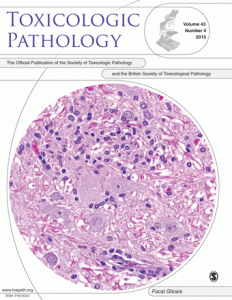 Researchers at the National Institute of Environmental Health Sciences have retracted a 2014 article after a review unearthed unresolved problems with the study’s control material.
Researchers at the National Institute of Environmental Health Sciences have retracted a 2014 article after a review unearthed unresolved problems with the study’s control material.
The retracted paper, “Effect of Temperature and Storage Time on Sorbitol Dehydrogenase Activity in Sprague-Dawley Rat Serum and Plasma,” looked to test the durability and stability of sorbitol dehydrogenase, an enzyme used to detect cancerous liver damage in rats.
Here’s the complete retraction notice from Toxicologic Pathology :
Continue reading “Values were outside expected ranges”: Toxicology paper spiked after audit
JBC cancer paper felled by duplication is one author’s second retraction this month
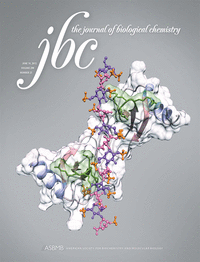 A 2002 paper in the Journal of Biological Chemistry on how lung cancer cells resist death has been retracted for duplicating figures from a 2001 paper.
A 2002 paper in the Journal of Biological Chemistry on how lung cancer cells resist death has been retracted for duplicating figures from a 2001 paper.
The retracted paper, “Fibroblast growth factor-2 induces translational regulation of Bcl-XL and Bcl-2 via a MEK-dependent pathway: correlation with resistance to etoposide-induced apoptosis,” shares the first and last authors with the 2001 paper, in Oncogene, as well as two other co-authors.
Here’s JBC’s entire retraction note, a sub-genre with which we’ve become intimately familiar by now:
Continue reading JBC cancer paper felled by duplication is one author’s second retraction this month
